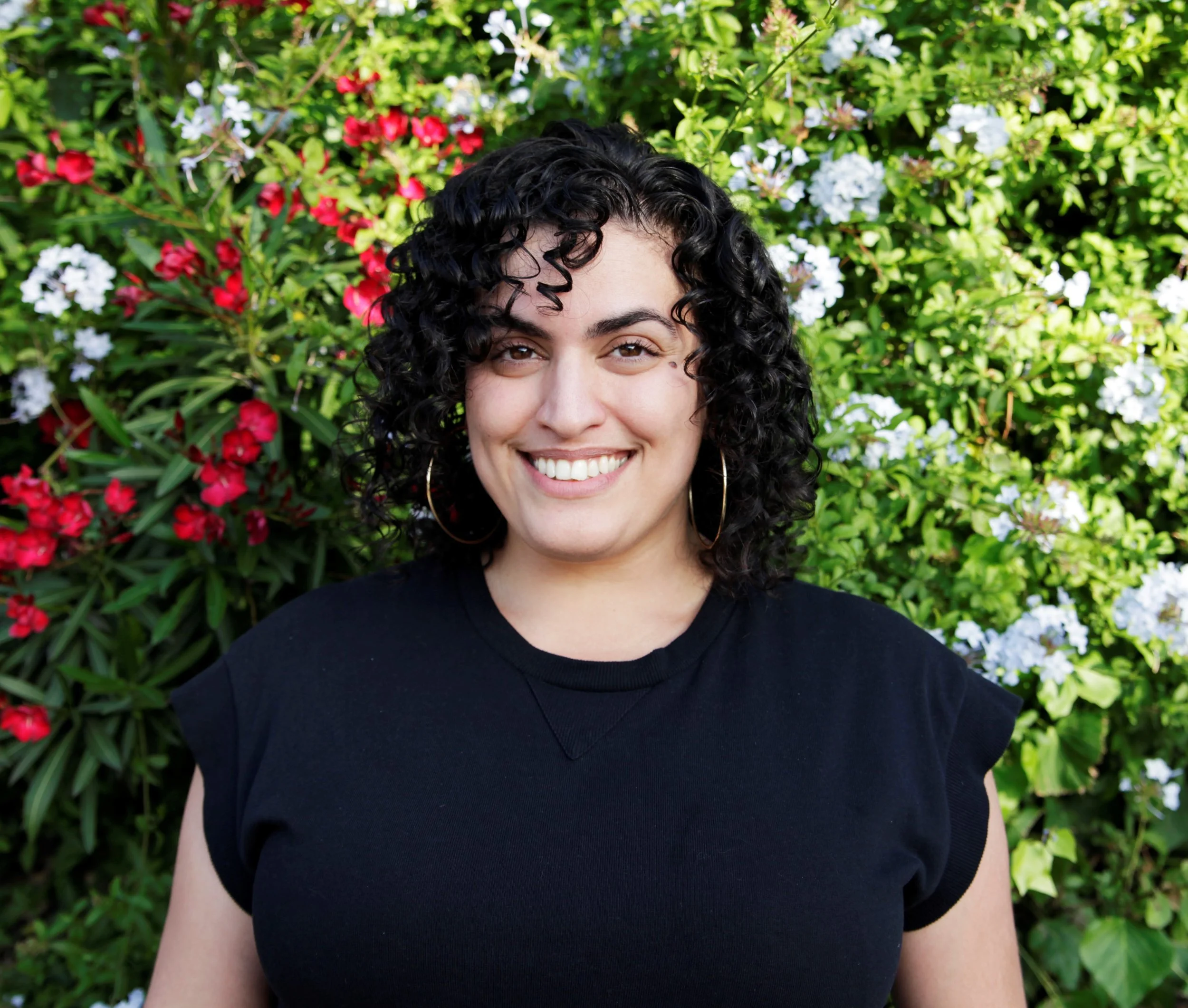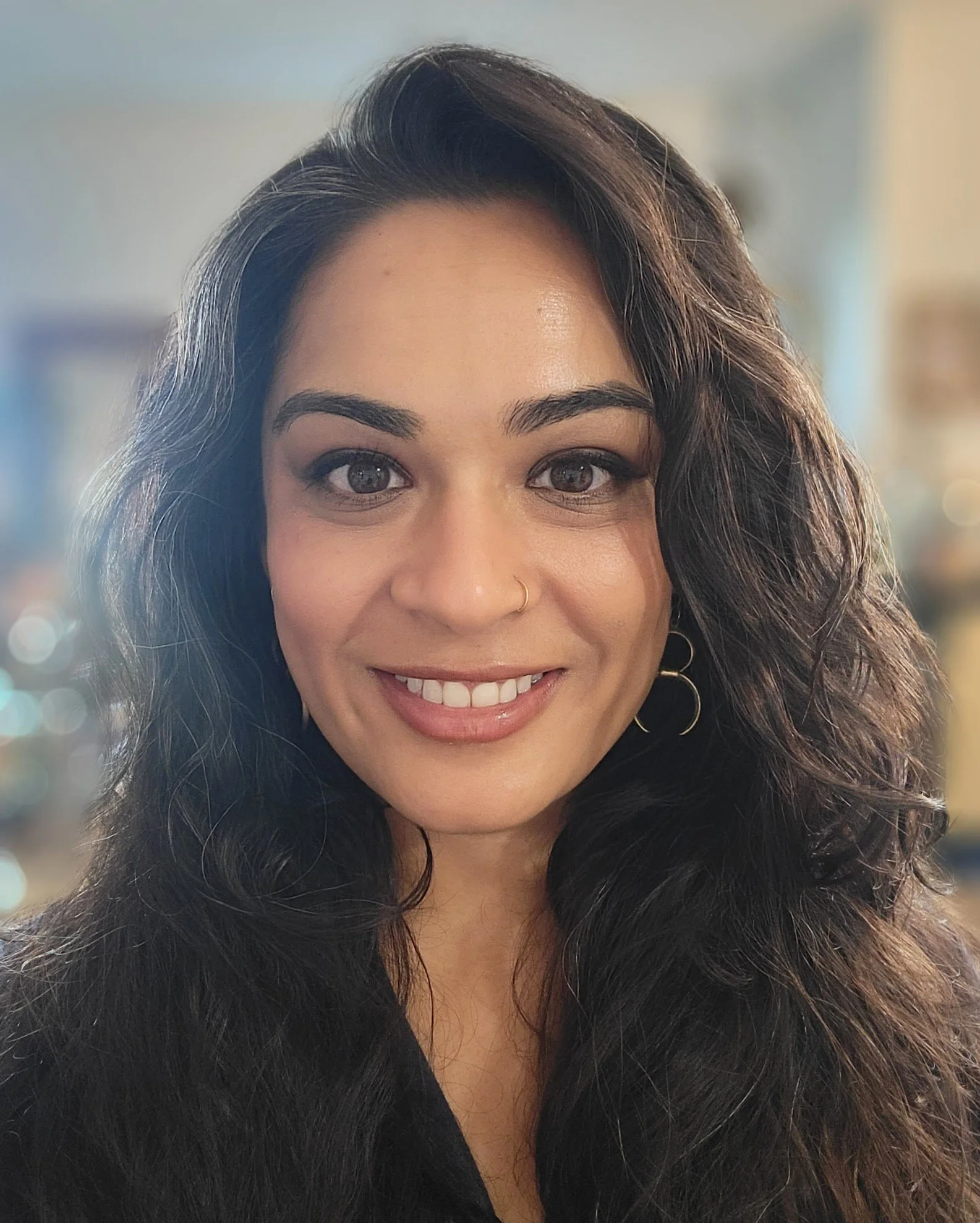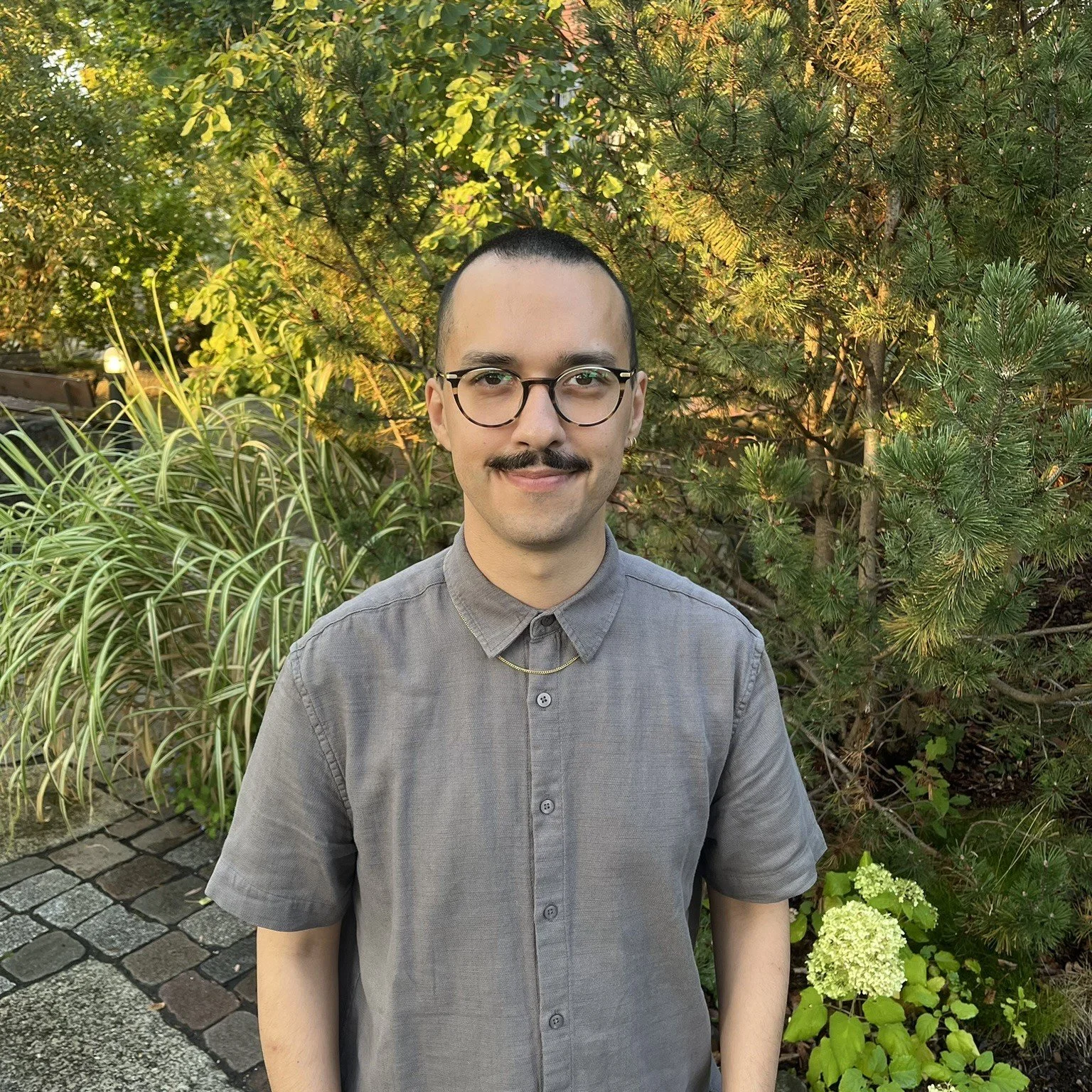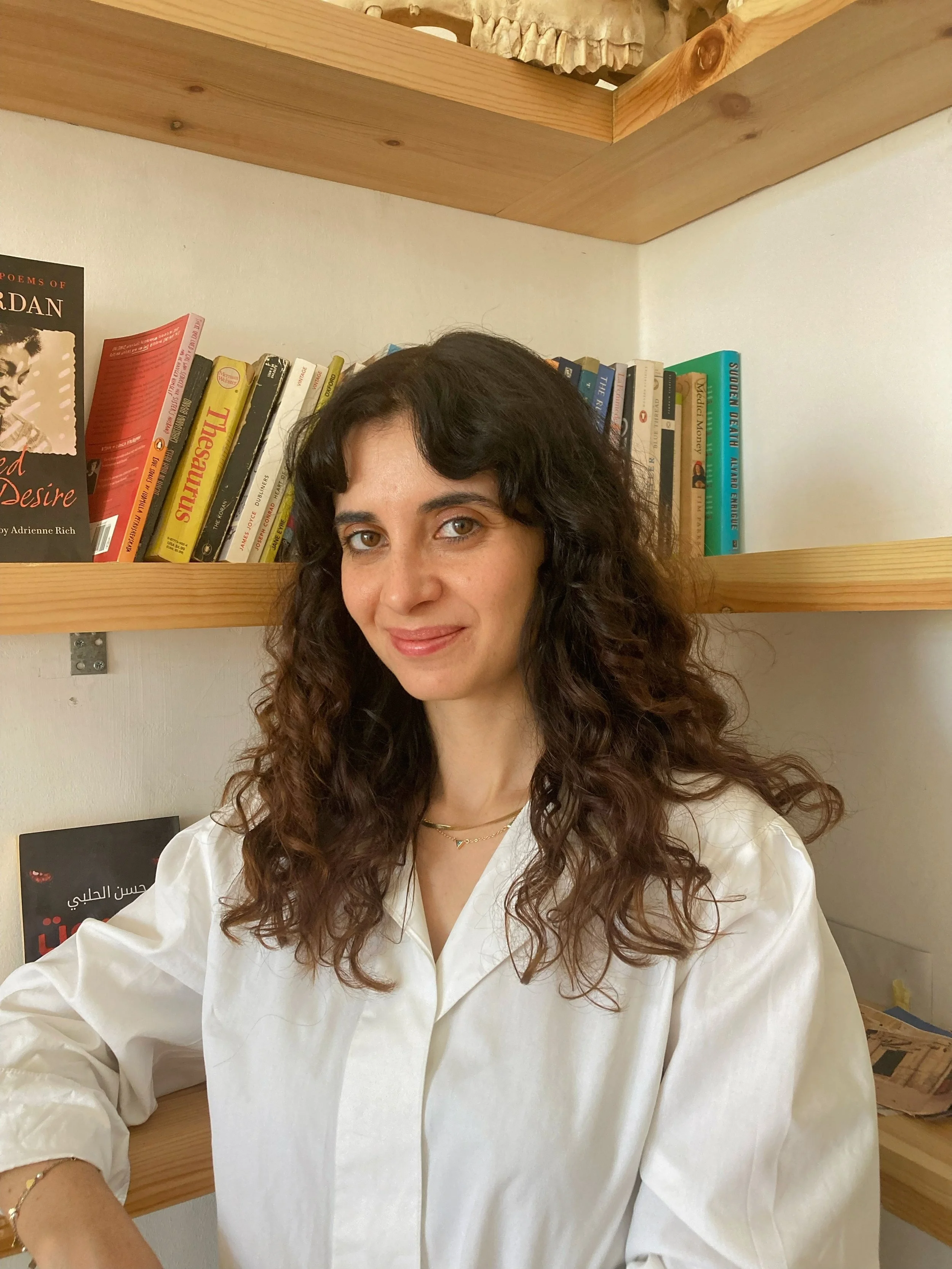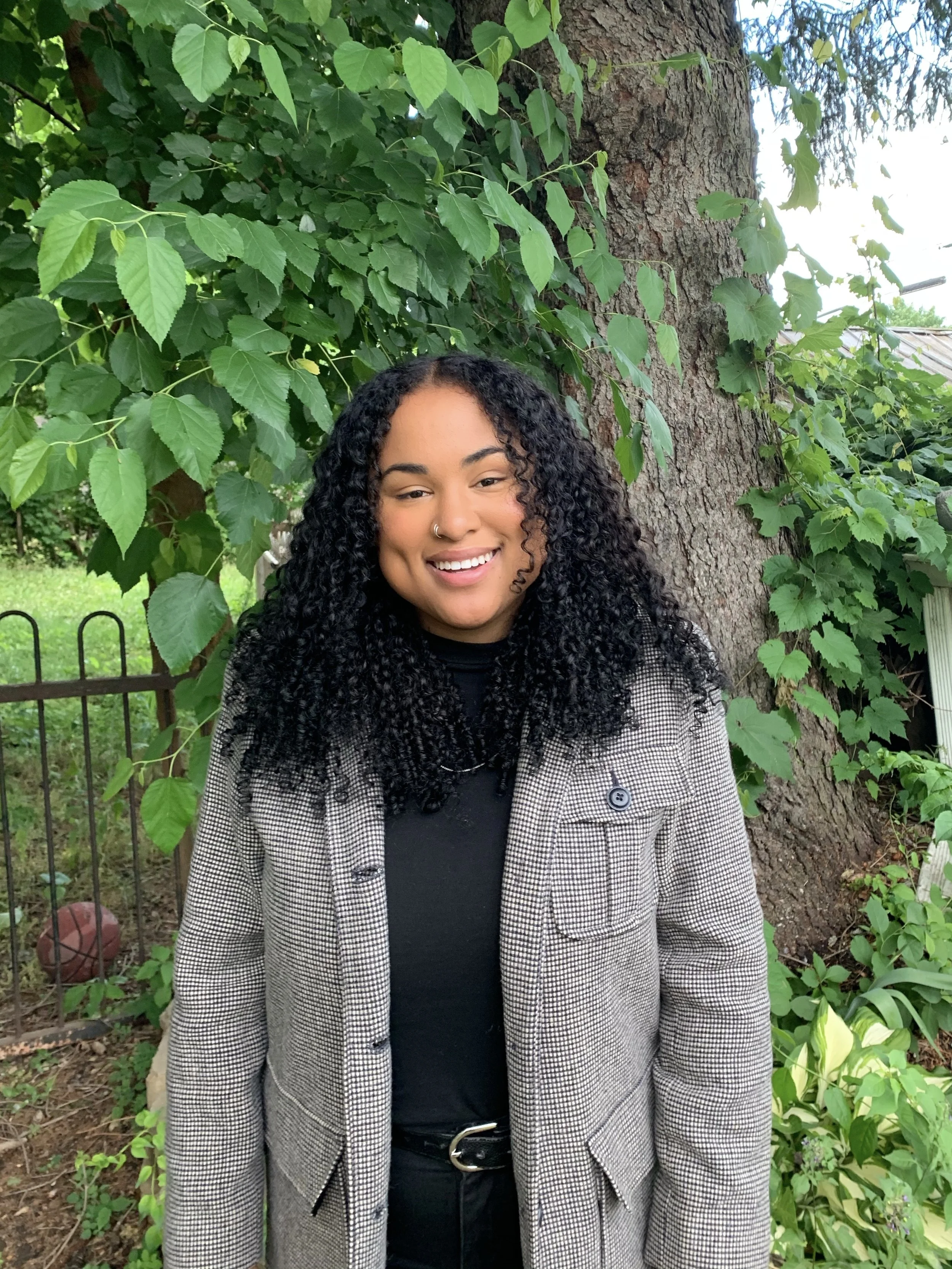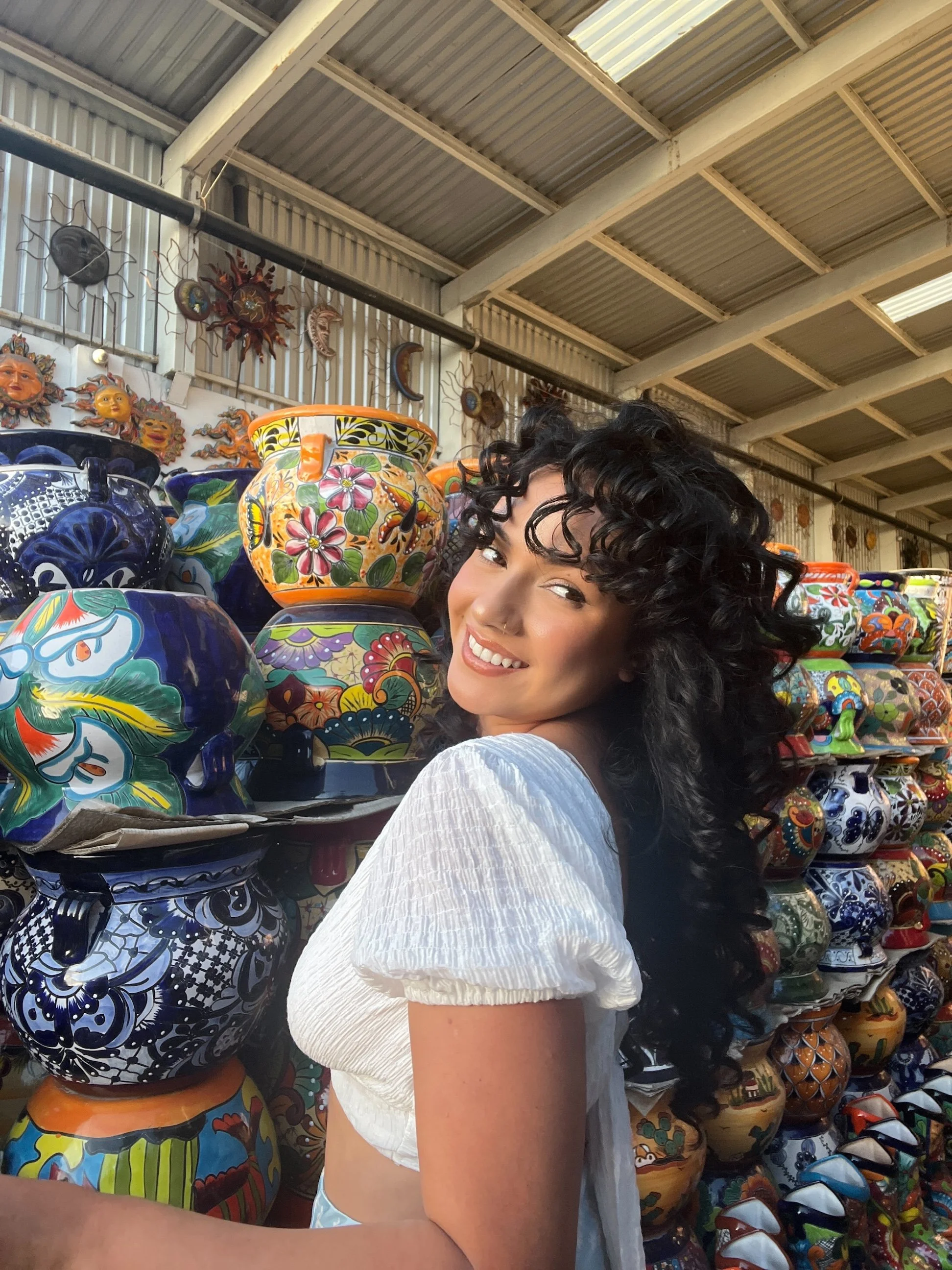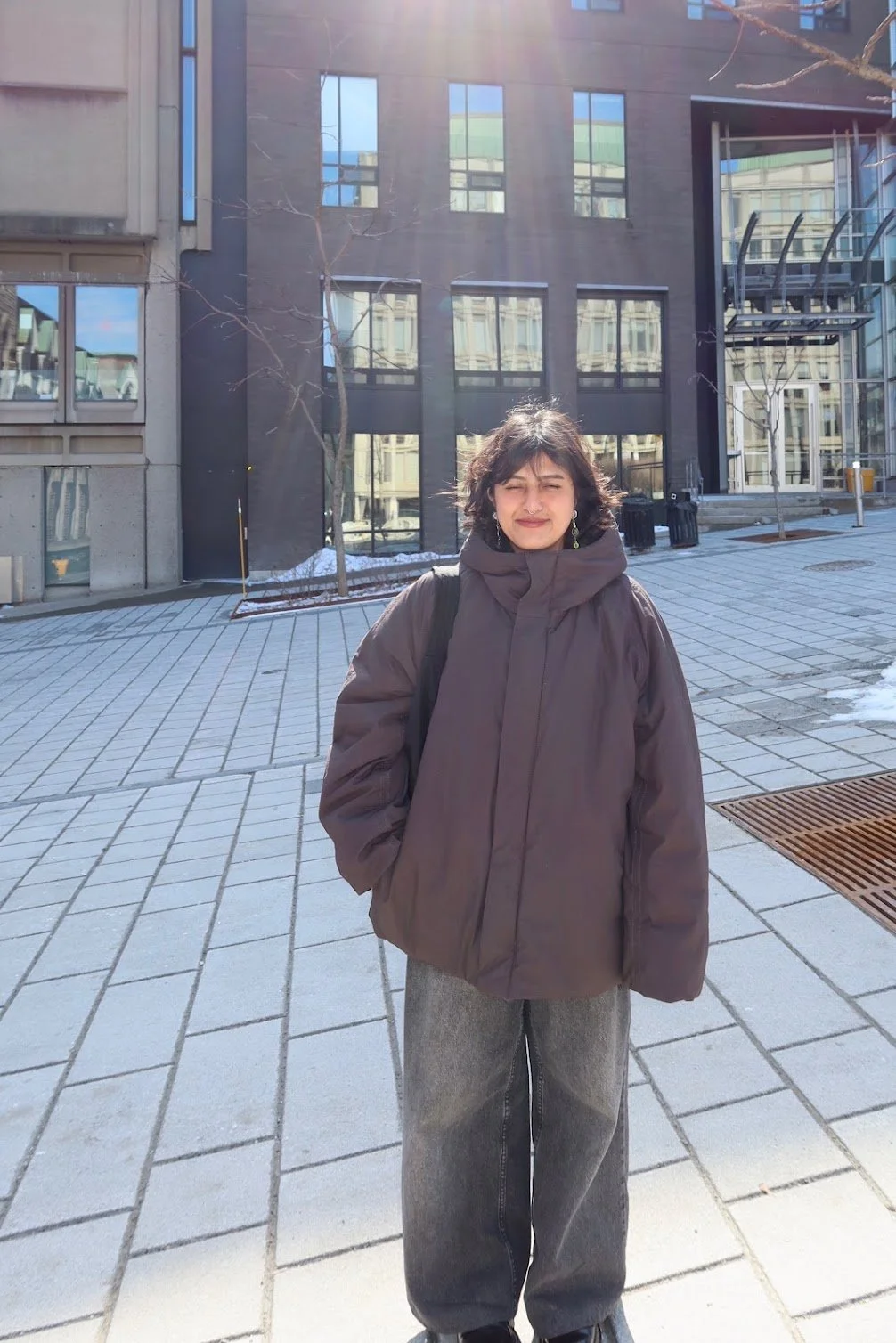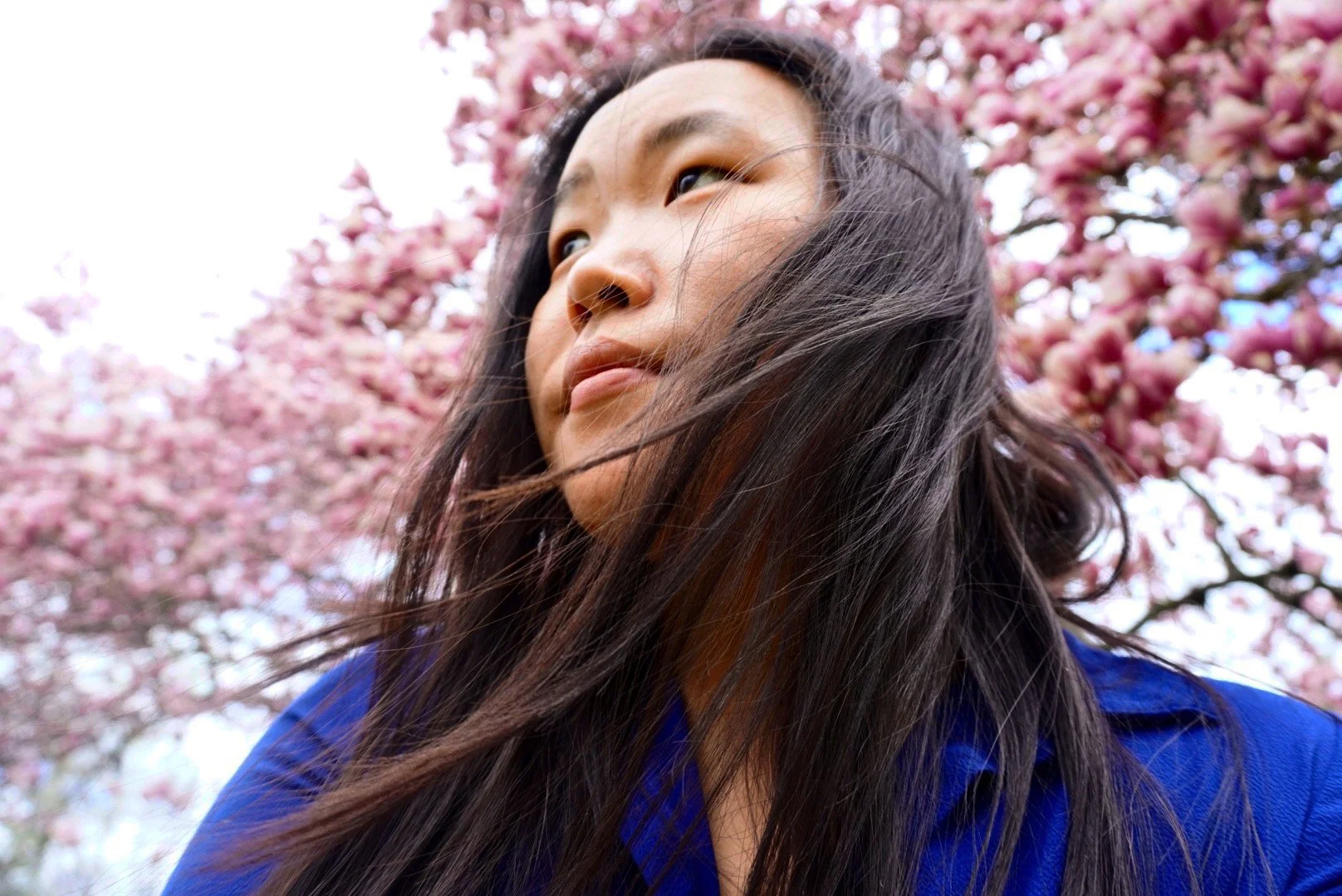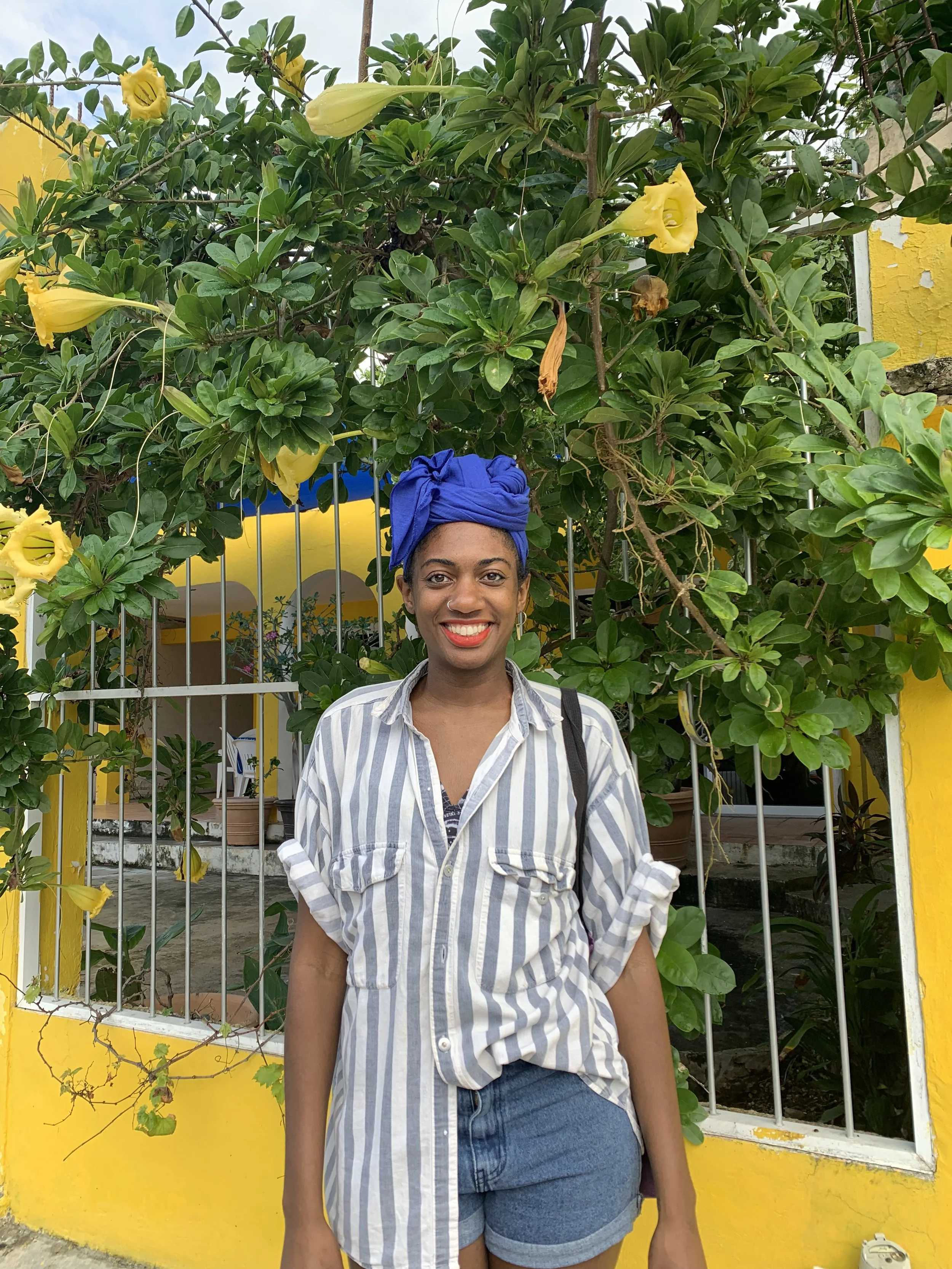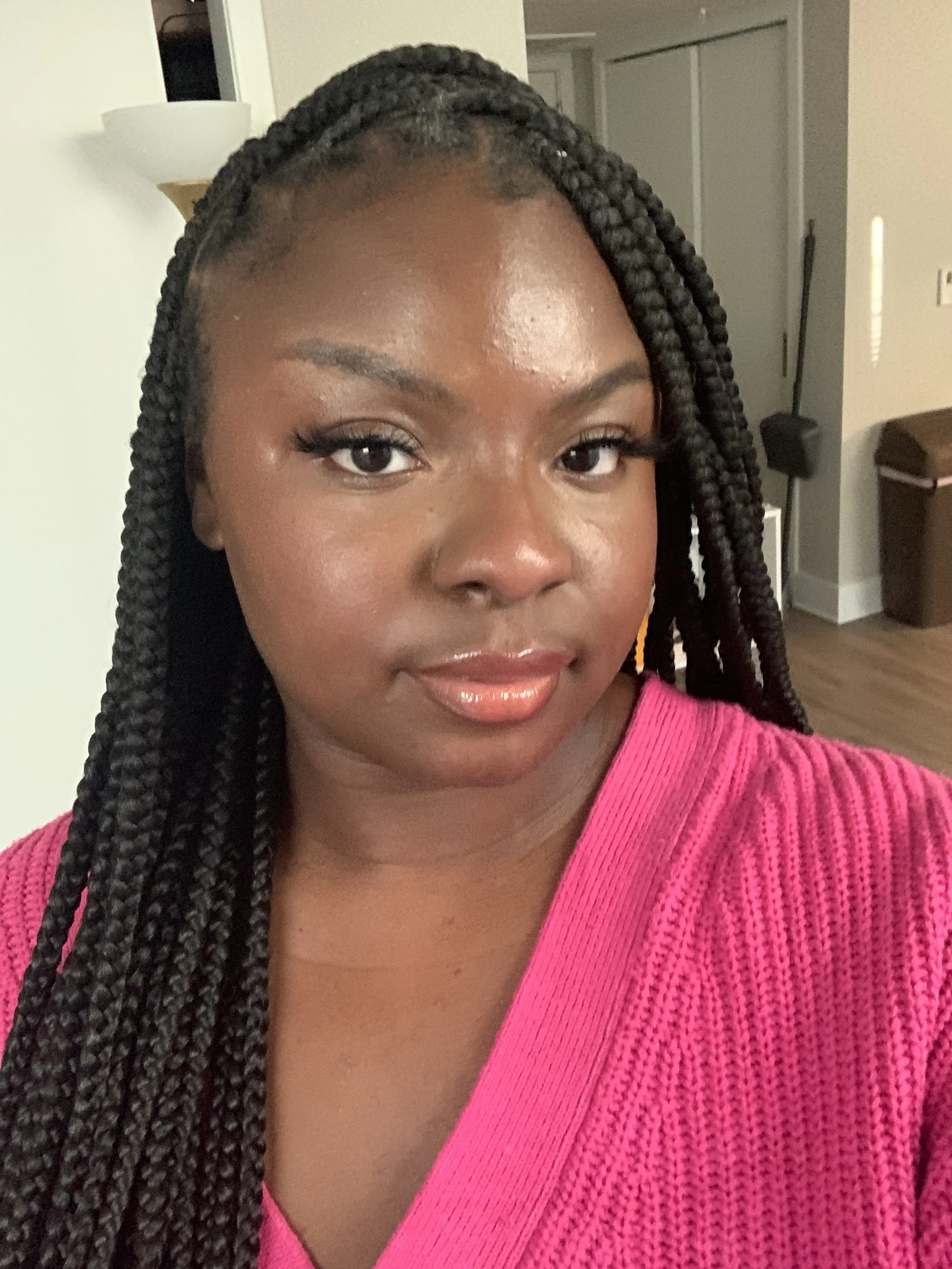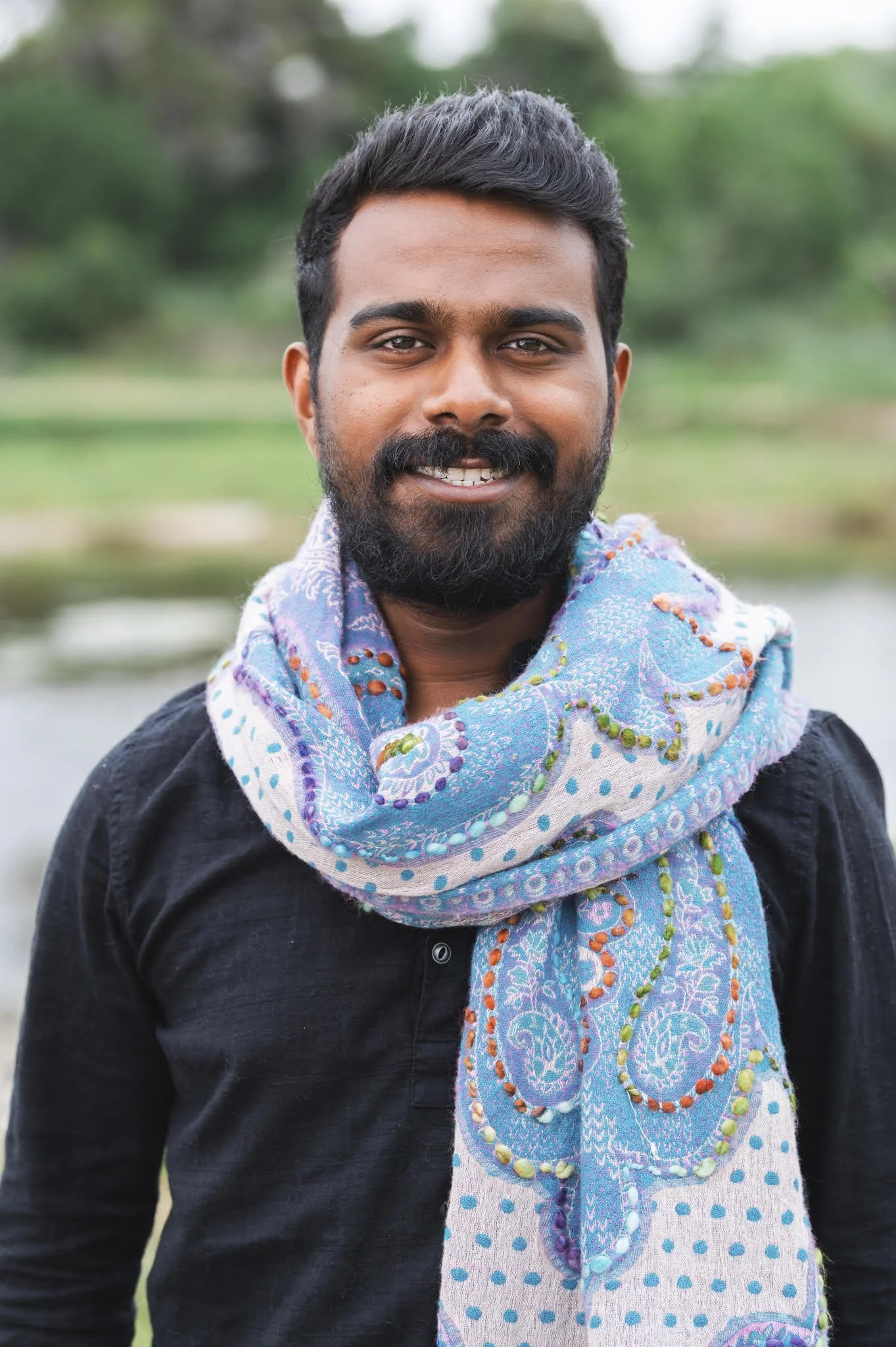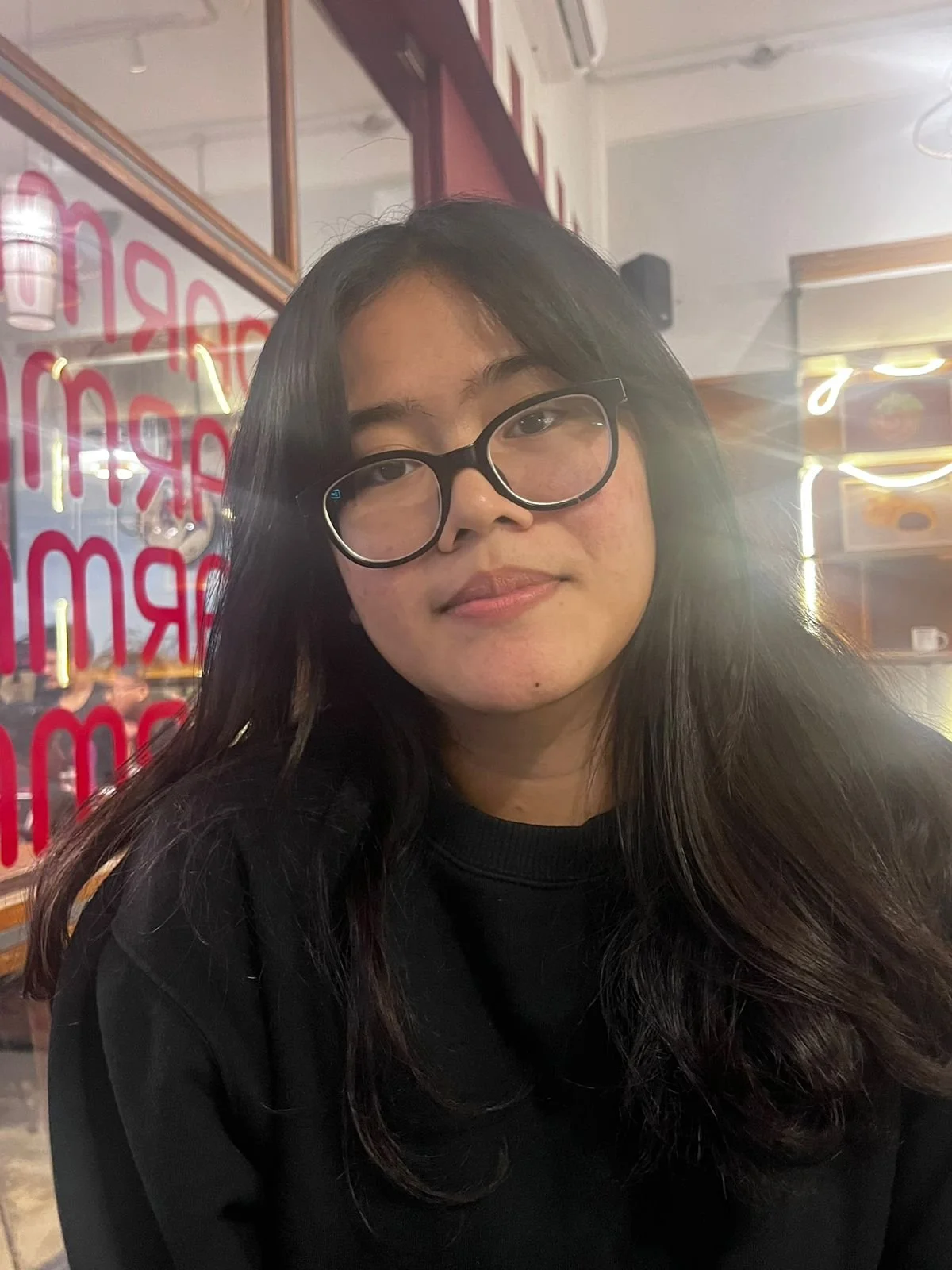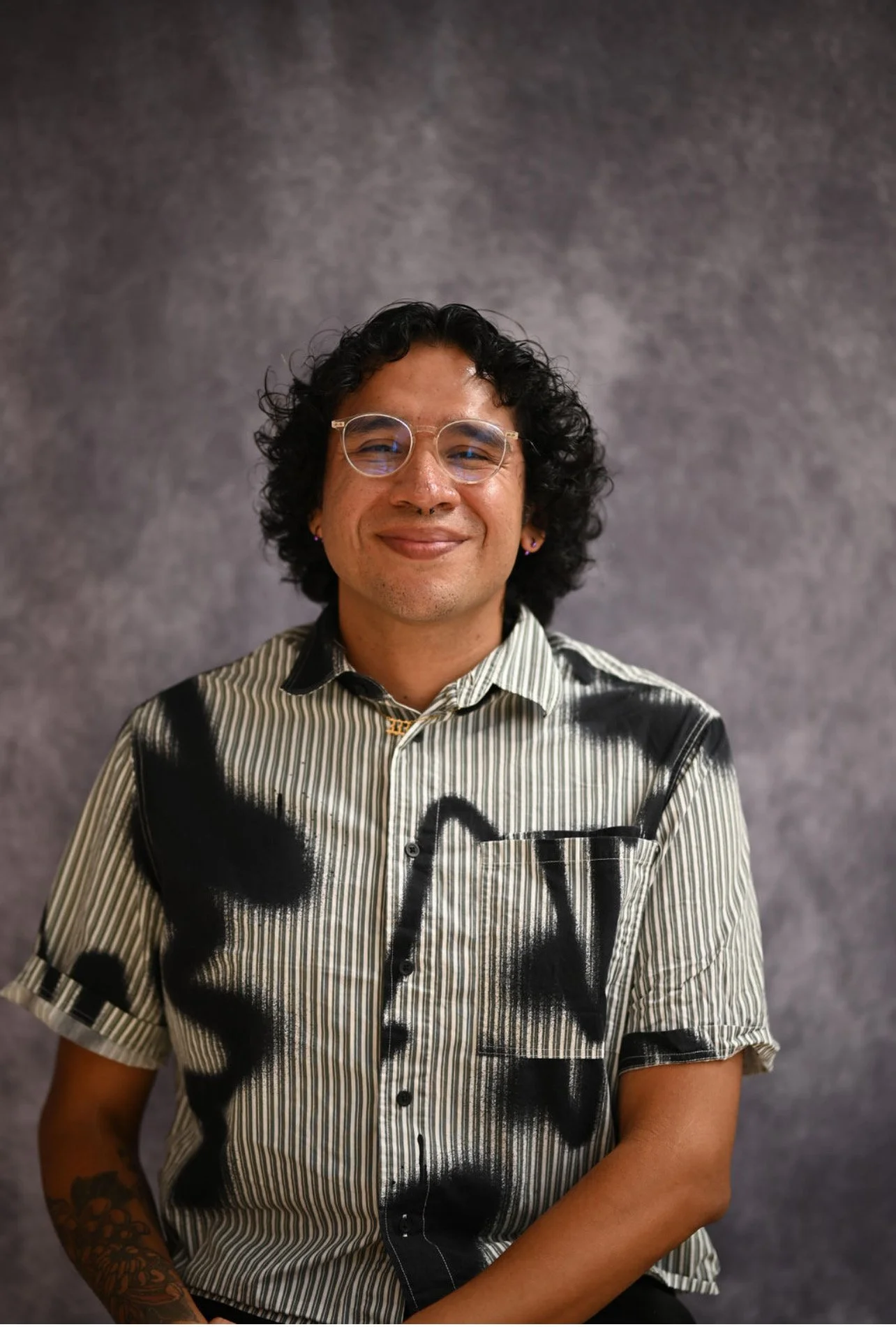2025-26 Academic Fellows
Each year, we welcome a new group of scholars to the BBQ+ academic fellowship program. The fellowship fosters ongoing relationships between the fellows and BBQ+ that continue after the academic year is done, and past cohorts remain an integral part of the BBQ+ community.
Postdoctoral Fellows
Tahereh Aghdasifar
-
Tahereh Aghdasifar is Assistant Professor of Gender and Feminist Studies at Pitzer College. Aghdasifar specializes in queer of color critique, performance studies, and political economy to focus on questions of sociality and opacity. Her current book project develops a queer theory of refraction reading anti-representational aesthetics of dispossession and displacement to build a collective materialist politics. Her scholarship is published in GLQ, Women & Performance, and A Love Letter to "This Bridge Called my Back," among others, and has been supported by the Institute for Citizens and Scholars (formerly The Woodrow Wilson) Mellon Fellowship, the Center for Black, Brown, and Queer Studies, and the American Association of University Women.
Khytie Brown
she/her/hers
-
Khytie Brown is an Assistant Professor of Religious Studies at the University of Texas at Austin, specializing in the subfields Religions of the Americas and Religion and Society. Before starting at UT, she was a Presidential Postdoctoral Research Fellow at Princeton University. Khytie holds a Ph.D. in African and African American studies from Harvard University, a Master of Theological Studies degree from Harvard Divinity School, and a Bachelor of Arts in Sociology and Religion from Emory University. As an ethnographer of African diaspora religions and African American studies, her research contributes to our understanding of how social differences like race, ethnicity, gender, and sexuality are embodied and structured within sensory hierarchies of difference and how these differences are recast through Africana religious epistemologies and sensibilities. Khytie’s research is motivated by the transnational movement of spirits, goods, peoples, and commodities throughout the Caribbean, Latin America, and the United States, and what these movements build in their wake.
Khytie’s current book project, Afro-Queer Journeys: Spiritual Intimacies and Rituals of Becoming in Revival Zion Religion is a rich ethnographic examination of Revival Zion religion that grapples with the complex intimacies that animate practitioners’ religiocultural worlds, showing how religion, race, gender, and sexual alterity intersect and operate transnationally among practitioners traveling and living between Jamaica, Panama, Canada, and The United States.
Samah Choudhury
she/her/hers
-
Samah Choudhury is an Assistant Professor in the Department of Humanities, Arts, and Social Sciences at the Illinois Institute of Technology, where she also directs the IIT Writing Center. She also holds a visiting scholar appointment for the 2025-2026 academic year with Northwestern University's Department of Religious Studies. She was previously a postdoctoral researcher in the Department of Race, Diaspora, and Indigeneity at the University of Chicago and an assistant professor at Ithaca College. Samah is at work on her first book, Standup Citizen, which asks how a sense of humor came to be a prized personality trait of the modern secular subject and why present-day Muslims are consistently configured as lacking this comportment. Her research has been supported by the Asian American Religions Research Initiative, the Center for Islam in the Contemporary World, the UNC Chapel Hill Asian American Center, the Institute for Social Policy and Understanding, and the Pauli Murray Center for History and Social Justice. Samah earned her PhD in Islamic Studies from UNC Chapel Hill.
Sanabel Abdel Rahman
she/her/hers
-
Armanc Yildiz is an anthropologist whose research explores the intersections of sexuality, race, value, spirituality, science, and medicine in Europe, with a focus on how knowledge is produced and contested. He earned his PhD in Anthropology from Harvard University and is currently a postdoctoral researcher at Humboldt-University of Berlin in the International Research Training Group Transformative Religion. His book project, Sensitive Subjects: Sex, Race, and Money in the Sex Education of Postcolonial Germany, shows how sex education in Germany, celebrated as progressive and emancipatory, also works as a racializing technology. Drawing on ethnographic fieldwork in Berlin, it demonstrates how the politics of “sensitization”—the pedagogical promise of making students more aware of gender equality, sexual diversity, and consent—sorts students along racial lines, positioning Muslim and refugee youth as sexual threats in need of reform. Bringing queer of color critique into conversation with science and technology studies, the book reveals how sex education universalizes liberal ideals of sexual freedom and equality through the language of science, reproducing whiteness and liberal subjectivity under the guise of neutrality. His next project investigates Anthroposophy and Anthroposophical Medicine at the intersection of science and spirituality. His scholarship has appeared in Sexualities and Cultural Studies. Beyond writing, he produces the podcast Academics Write to demystify scholarly publishing, and as a host for the New Books Network he interviews authors to share their work with audiences inside and outside academia. He also serves as Assistant Editor at Culture and Religion and Associate Editor for Online Content at American Anthropologist, where he curates the Highlights section.
Armanc Yildiz
-
Sanabel Abdelrahman holds a Ph.D. in Arabic Studies with a focus on magical realism in Palestinian literature from Philipps-Universität Marburg. She completed her BA and MA at the University of Toronto’s Department of Near and Middle Eastern Civilizations. She was a Postdoctoral Fellow at MECAM working on 'The Futures of Postcolonial Hauntology: A Case for the Maghreb' and at Forum Transregionale Studien (EUME) where she worked on her research under the title ‘Beyond Magical Realism: Situating Palestinian Liberation within Indigenous Futurisms’. Sanabel is a writer of fiction and essays.
Advanced Doctoral/Dissertation- Level Fellows
Robert A. Barry
he/him/they/them
-
Rob Barry, Jr. is an educator, critical theorist, and R&B enthusiast from the Westside of Chicago, IL. As a PhD Candidate and Instructor in the Department of Comparative Studies at The Ohio State University, Rob employs Black critical theory, Black Gender Studies, and Black Visual Culture & Media to examine historical processes of Black un/gendering in the afterlife of slavery. Their research interrogates how embodiments and performances of Black genders emerge as affective remnants of chattel slavery, animating and haunting those traditionally and non/traditionally rendered masculine across diasporic spaces and temporalities. Rob argues that gender and space converge as ontological markers of humanism, violently mobilized to sustain the Black as a captive slave-subject. What appears as negotiation (attempts at imagined inclusion, progress, or recognition as gendered beings) remains bound to this architecture, re-inscribing the antagonism rather than resolving it. In charting these negotiations across Black geographies such as the church, the barbershop, Black Greek-lettered organizations, Ballroom, and the performance stage, Rob unsettles the very grounds of humanism, revealing how the afterlife of slavery persists as the structuring logic through which gender, space, and Black being are violently articulated and perpetually imperiled.
Jessina Emmert
she/her/hers
-
Jessina Emmert is a PhD candidate at the University of Kansas with a concentration in American Studies and a certificate in African-American Studies. Her research project Fancy Movements: Black Women and Performance in New Orleans merges Black feminist theoretical frameworks, performance studies, and Black digital humanities to examine the intricate layering of the social and physical aspects of Black women’s sense of space and place under New Orleans’s institution of slavery in the nineteenth-century. By uncovering the spatial movements and activities of “fancy girls” within four different sites of struggle: the New Orleans slave market, street windows, the home, and the courtroom - her research interrogates how these sites are key to understanding how fancy girls navigated through the city’s different spatial, racial, and sexual configurations.
Verónica Mandujano
she/her/hers
-
Verónica Mandujano is a doctoral candidate in the Department of Chicana/o Studies at the University of California, Santa Barbara. Her dissertation offers a decolonial critique of male bias in science, examining how evolutionary biology and obstetric medicine share an ontological framework that has historically erased pleasure and arousal as vital forces in childbirth. She also critiques contemporary frameworks such as polyvagal theory which, while emphasizing embodied attunement, remain shaped by male-centered assumptions that cast menstruating, reproductive, and menopausal bodies outside the “norm.”
By re-examining the “obstetrical dilemma” and evolutionary accounts of the orgasm, her project centers the physiology of reproductive and cyclical bodies — highlighting their reliance on oxytocin and conditions of safety — to argue for reimagined approaches to childbirth, menstruation, postpartum, and peri/post-menopause. Grounded in Chicana feminist theory, her work bridges the history and philosophy of science with reproductive justice, offering alternatives to the limiting ontologies of Western science.
In addition to her scholarship, Verónica is a somatic practitioner who supports the re-sensualization of reproductive and cyclical bodies while advancing a decolonial critique of embodied frameworks such as polyvagal theory. Her practice draws on parterismo—a rural Indigenous home birth tradition from her community in Huanaxuato, Mexico—linking ancestral womb knowledge with feminist critiques of science. This praxis bridges embodied traditions with critical scholarship to reimagine childbirth and reproductive health beyond the confines of overly-medicalized and male-centric science.
Her doctoral research is supported by the President’s Pre-Professoriate Fellowship and the Center for Feminist Futures at UCSB.
Jasmine Norma Watson
she/her/hers
-
Jasmine Norma Watson is a Ph.D. candidate at The Pennsylvania State University, jointly appointed in the departments of History and African American & Diaspora Studies. She earned her B.A. in Spanish Studies from Dominican University and an M.A. in History from Penn State. As a graduate student, Norma co-organized the interdisciplinary conference “Black Experiences in the Wider Atlantic: Approaches, Methods, & the Archive, 16th–21st Centuries,” for which she received the Graduate Alliance for Diversity and Inclusion Service Award. Norma’s research interests include 19th to 21st century Latin American History, AfroLatinidad, Black Women’s History, Comparative Resistance Histories, and Black Diaspora Studies. Her dissertation “Archiving Brazilian Negritude: Oral History and Black Counter-Education during the Military Dictatorship” explores the role of AfroBrazilian educational spaces in fostering Black consciousness before, during, and after Brazil’s military dictatorship (1964-1985). By centering oral histories of Black militants, domestic workers, educators, and community members, her research investigates how intimate pedagogies that centered community, family, and friendships were drivers of the movement. She also identifies similar resistance strategies rooted in community and love that stretched across generations, social class, and gendered identities within Brazil’s Black population. Before graduate school, Norma taught English as a Second Language and Spanish in the Joliet School District in Illinois. She also organized events, protests, and educational programs for Black students at Dominican University and for the surrounding community. Norma’s experiences as a teacher and community organizer grant her a unique perspective to uplift the intimate experiences and everyday practices that shape and sustain grassroots education and resistance in Black communities. Her research has been supported by CLR James Research Fellowship, Penn State’s Africana Research Center, and Humanities Institute, and more. Beyond her doctoral studies, Norma enjoys dancing, spending time with friends and family, and grounding herself by being in nature and journaling.
Minh Huynh Vu
-
Minh is a writer and teacher based in New Haven, CT, pursuing a Ph.D. in American Studies and Women's, Gender, and Sexuality Studies with a Graduate Certificate in Ethnicity, Race, and Migration at Yale University. Their dissertation traces the infrastructural afterlives of U.S. militarism across Asia and the Pacific through the everyday object of the cardboard box. Previous or upcoming work can be found in ASAP/Journal, English: Journal of the English Association, GLQ: A Journal of Lesbian and Gay Studies, Interdisciplinary Studies in Literature and Environment, and positions: asia critique. From 2023 to 2024, Minh was a fellow with BBQ+ as part of its Early Doctoral cohort.
Master’s/Early Doctoral Fellows
Trishala C. Dutta
-
Trishala Chettri Dutta is a third-year PhD student in the English department at the University of British Columbia. They grew up in the Himalayan town of Darjeeling, a place that continues to shape how they imagine, learn, and teach. Trishala’s research looks at exhaustion as a racial and social condition, and attends to the political urgency of thinking with lesser-known forms of structural violence. They are also deeply interested in the food histories of the Himalayas and in writing about brown mothers.
Sarah Kim-Williams
she/hers/they/them
-
Sarah Kim-Williams is a Ph.D. candidate in Disability Studies with a concentration in Gender and Women’s Studies at University of Illinois Chicago. Sarah’s work emerges at the intersections of Asian American Studies, Transnational Feminist Disability Studies, and Crip Theory, where she examines how Asian American writers and artists deploy representations of transnational/transracial adoption within speculative fiction to respond to, critique, and imagine alternative futures beyond histories of reproduction regulation. Attending to the literary and aesthetic experiments generated by Asian American writers and artists, her work investigates the crip, nonhuman, and machine intimacies that emerge and offer alternative ways of thinking about kinship, futurity, and embodiment.
Tiffany Lee
she/her/hers
-
Tiffany Lee (she/her/hers) is a Black queer femme from NYC. She’s more poem than flesh, more mermaid than girl, and more tender than most things.
She is the Assistant Director of Intercultural Education at the University of Wisconsin–Madison, where she supports equity and belonging through transformative educational programming. She holds a Master’s in Gender and Women’s Studies with a focus on queer studies and is currently pursuing a second Master’s in African American Studies.
As a certified yoga teacher, Tiffany centers pranayama and restorative practices, offering free, trauma-informed breathwork and meditation classes to queer communities through her community wellness series, Queer theAir. These sessions create accessible healing spaces tailored to the lived experiences of queer and trans individuals. Her work explores the embodied politics of breath, such as how chest binders and high heels influence breathing
Tiffany was a regular content writer for The Body is Not an Apology, where she covered themes including queer identity, healthy relationships, and immigrant narratives. Her voice and perspective were also featured in the PBS interview series Why Race Matters, in the episode "Black and LGBTQ+ in Wisconsin," where she discussed the intersections of race, gender, and queerness.
Through both academic and community-rooted work, Tiffany continues to advocate for embodied liberation and the creation of affirming spaces for marginalized identities.
Mia Sturdivant
she/her/hers
-
Mia Sturdivant is a second-year Africana Women’s Studies Masters student at Clark Atlanta University. Mia was born and raised in Charlotte, NC. Her Southern-roots engendered an interest in storytelling and kinship as tools for survival, central themes in her formal and informal work.
Mia earned her B.A. in History from Howard University. During her matriculation, she stoked her interest in public history by interning at several DMV-area cultural institutions, such as the Banneker-Douglass-Tubman Museum, President Lincoln’s Cottage, and the Smithsonian Center for Folklife and Cultural Heritage. She currently serves as a Graduate Research Assistant at the Clark Atlanta University Art Museum.
Mia’s research interests reside in the neighborhoods of performance studies and body politics. Her thesis sits at the intersection of these subjects, addressing size exclusionary practices in HBCU majorette dance spaces. Employing Black feminist research methodologies and frameworks, Mia aims to reconsider the liberatory potential of a subculture whose performance script extends past the 8-counts.
Roshan Roymon
-
Roshan Roymon is an MA/PhD Regents Fellow in Feminist Studies at the University of California, Santa Barbara. They hold a Bachelor’s (Hons.) and Postgraduate Diploma in English Literature and Culture from Ashoka University, India, and previously co-taught a community-engagement course, Queering Goa, at the Goa Institute of Management, India.
Roshan’s doctoral project asks what becomes possible when illness is not only feared or cured but erotically desired, communally lived, and sensuously survived. In the wake of recurring and racialized health crises—HIV/AIDS, COVID-19, Monkeypox—the project develops “viral erotics” as a framework for world-making through bodily nonsovereignty, microbial intimacy, and refusals of cure. Drawing on queer, feminist, and crip traditions—particularly Black, Dalit, and Asian-American feminist thought— as an Early Doctoral Fellow at BBQ+, Roshan engages cultural texts ranging from bareback pornographies of HIV transmission to crip-of-color performance poetry.Through this work, Roshan examines how illness can generate alternative modes of pleasure, relation, and care, while also foregrounding the material inequities that shape who can survive with illness across race, caste, and gender. Beyond academia, they pursue music, photography, and creative writing.
Undergraduate Fellows
Lutfiah Setyo Cahyani
she/her/hers
-
Setyo (she/her) is a cultural worker and researcher, her practice sits at the intersections of artistic engagement, socio-spatial inquiry, and cultural activism. Born and raised in Jakarta, she studied International Relations at Diponegoro University, Semarang, where she critically questioned the structures of globalization and the politics of everyday life.
Setyo is currently active in Operations for Habitat Studies (OHS), a cross-disciplinary initiative at the nexus of urban studies, spatial practices, and community knowledge. Through OHS, she engages in situated research and inquiries on how people negotiate, inhabit, and shape their environments. She is also learning and unlearning with the School of Improper Education, where she explores "Architecture of Dream Space" as a way to reimagine care, spatial politics, and social movements beyond institutional norms and epistemic border.
Olajuwon Oladipo
she/her/hers
-
Jubi Oladipo is a sophomore at Harvard College pursuing a joint concentration in History and African American Studies, with a secondary in Ethnicity, Migration, and Rights, as well as a language citation in Korean. Her current research interest pertains to the intersections between Black and Indigenous histories, particularly in relation to slavery, dispossession, and sovereignty within the United States. Throughout the fellowship, Jubi plans to advance her research on Bleeding Kansas, aiming to further uncover and explore Black and Indigenous accounts of the conflict that have been largely marginalized within its historiography. On campus, she writes for the Harvard Crimson’s Editorial Board and serves as an Inclusivity Co-Chair for the Association of Black Harvard Women.
Humberto Hernandez
they/them/theirs
-
Bertie Hernandez Mendez double majors in Sociology, Women’s, Gender, and Sexuality Studies. Their research project focuses on the impact of ICE detention on undocumented gender-variant folks. Bertie’s interest in the topic came after experiencing firsthand the harmful effects of ICE detention as a queer person of color. They approach the work through a feminist abolitionist lens, centering the humanity and the dignity of people who are experiencing detention in the punitive crimmigration system. Bertie is an organizer and advocate with the California Immigrant Youth Justice Alliance (CIYJA), working with people currently detained at ICE facilities to provide them and their families with resources to achieve their liberation. They work with various communities to build solidarity and collective power. Our Queerness and Magic cannot be erased by policies nor executive orders!
Christopher Pham
he/his/they/them
-
Christopher Pham (he/they) is a writer, researcher, and community organizer. They recently completed a Bachelor of Arts in English Literature with a minor in Ethnic Studies at the University of Colorado Boulder. Their research is grounded in Asian American Studies and Critical Refuge(e) Studies, with broader engagements in Black and Indigenous thought. Their current work explores how water functions as both material and metaphor in Vietnamese American cultural production and beyond. More broadly, they are interested in how Black, Indigenous, and diasporic communities differently conceptualize and relate to water, and how these relationships illuminate intersecting histories of survival and refusal that challenge dominant narratives of climate, migration, and modernity.

